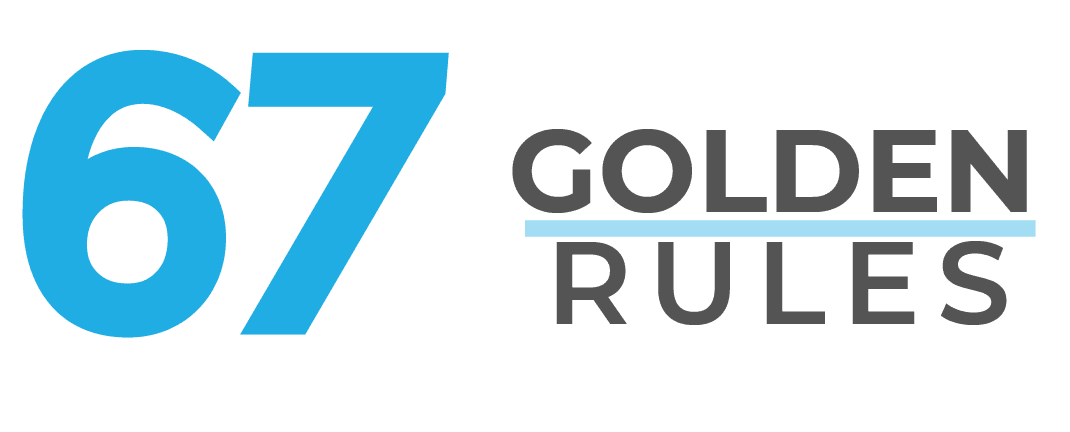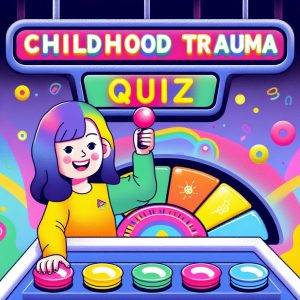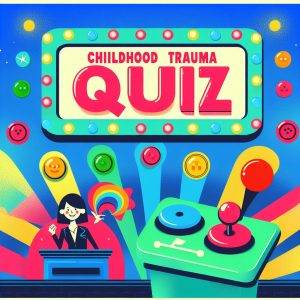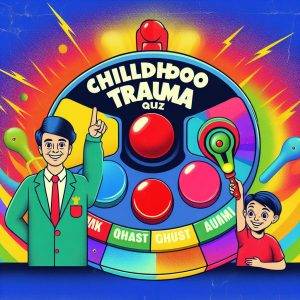Introduction
Childhood trauma is a silent assailant, often lurking in the shadows of your past, shaping your personality and influencing your behaviors in ways you might not even realize.
While some traumas are evident, such as physical abuse or neglect, others remain concealed beneath the surface, quietly shaping your thoughts, actions, and relationships.
Understanding the prevalence and effects of childhood trauma is crucial for both individuals and society at large.
To shed light on this important issue, a “Childhood Trauma Quiz” can serve as a tool for your self-reflection and awareness. Let’s delve into what such a quiz might entail and why it’s essential.
What is Childhood Trauma?
Childhood trauma refers to experiences of extreme stress or adverse events during your childhood that can have long-lasting and profound effects on your physical, emotional, and psychological well-being.
These experiences can include physical, emotional, or sexual abuse, neglect, household dysfunction (such as substance abuse or mental illness), or witnessing violence or trauma. Search ‘teen therapy near me’ online if you experienced a traumatic event that affects your mental health.
Childhood trauma disrupts your normal development and can lead to a range of difficulties later in your life, including mental health issues, relationship problems, and physical health problems.
Hence, it’s essential to recognize and address childhood trauma to promote healing and resilience.
What is the Purpose of the Childhood Trauma Quiz?
A Childhood Trauma Quiz is an interactive tool that prompts self-reflection on your past experiences to raise your awareness, normalize discussions, and help you identify signs of trauma.
It serves various purposes which are not limited to:
- Raise Awareness: By highlighting the prevalence and various forms of childhood trauma, the quiz educates you about this important issue.
- Encourage Self-Reflection: You are prompted to reflect on your past experiences, fostering your personal insight into potential sources of trauma and their impacts into your life.
- Identify Signs and Symptoms: The quiz helps you recognize common signs and symptoms associated with childhood trauma, enabling early intervention and support.
- Normalize Discussions: By initiating conversations about childhood trauma openly, the quiz aims to destigmatize mental health discussions and encourage you to seek help when needed.
- Promote Prevention and Intervention: Through awareness and early identification, the quiz facilitates timely intervention, fostering your resilience and mitigating the long-term effects of childhood trauma.
So why should you bother taking the Childhood Trauma Quiz? Well, let me break it down for you…
The Benefits of Taking Childhood Trauma Quiz
Here are 6 benefits of taking a childhood trauma quiz that you should know:
- Know Yourself Better: It’s like holding up a mirror to your past, helping you understand how your childhood experiences might be affecting you now.
- Validation: Sometimes just knowing that what you went through was real and mattered can make a world of difference.
- Early Intervention: Spotting those signs early means you can get the support you need sooner rather than later, which can seriously change the game.
- Connect with Others: Sharing your results can open up conversations with friends or family, creating a support network that’s got your back.
- Break the Stigma: By talking openly about childhood trauma, you’re helping chip away at that big old stigma surrounding mental health.
- Empowerment: Armed with knowledge about your past and its effects, you’re in a better position to take control of your present and future. So yeah, taking that quiz? It’s like giving yourself a little gift of self-awareness and strength.
Now let’s explore the below quiz test to help you identify any signs of childhood trauma that you may have…
Childhood Trauma Quiz Test
Please answer the following questions honestly, selecting the response that best describes your experiences.
1. Did you witness or experience physical abuse during childhood?
a) Never
b) Occasionally
c) Frequently
2. Were you subjected to emotional or psychological abuse as a child?
a) No
b) Sometimes
c) Often
3. Did you experience neglect or lack of basic care from your primary caregivers during childhood?
a) No, I always felt cared for
b) Sometimes I felt neglected
c) I frequently felt neglected or uncared for
4. Have you experienced sexual abuse during your childhood?
a) No
b) I’m unsure
c) Yes, I have experienced sexual abuse
5. Did you witness domestic violence between your caregivers or other family members during childhood?
a) No
b) Occasionally
c) Frequently
6. Did you experience the loss of a parent or primary caregiver during your childhood?
a) No
b) Yes, but it did not significantly impact me
c) Yes, and it had a profound impact on me
7. Were you bullied or harassed by peers during your childhood?
a) No
b) Occasionally
c) Frequently
8. Did you grow up in an environment with substance abuse or addiction issues?
a) No
b) Occasionally
c) Frequently
9. Did you experience significant instability or frequent moves during your childhood?
a) No
b) Occasionally
c) Frequently
10. Have you ever experienced nightmares or flashbacks related to your childhood experiences?
a) No
b) Occasionally
c) Frequently
Scoring
For each “a” answer, assign 0 points.
For each “b” answer, assign 1 point.
For each “c” answer, assign 2 points.
Interpreting Your Score
0-10 points: Your responses suggest that you have likely not experienced significant childhood trauma. However, if you are experiencing any distress or challenges, it may still be beneficial to seek support.
11-20 points: Your responses indicate that you may have experienced some level of childhood trauma. It could be helpful to explore these experiences further with a trusted friend, family member, or mental health professional.
21-20 points: Your responses suggest that you may have experienced significant childhood trauma. Seeking support from a qualified therapist or counselor can be instrumental in processing these experiences and healing from their effects.
So, what should you do next after identifying childhood traumas?
Next Steps Based on Your Childhood Trauma Quiz Results
Here is a list of 6 things that you can do after identifying signs of childhood trauma:
- Seek Professional Help
It’s important to reach out to a therapist or counselor who can help you unpack your experiences in a safe and supportive environment. They’re trained to guide you through the healing process and offer valuable insights and coping strategies tailored to your needs.
- Educate Yourself
Take some time to read up on childhood trauma and its effects. Understanding what you’ve been through can help you make sense of your feelings and experiences, empowering you to take control of your healing journey.
- Join Support Groups
Connecting with others who’ve been through similar experiences can be incredibly validating. Support groups provide a sense of community and understanding, reminding you that you’re not alone in your journey towards healing.
- Practice Self-Care
Make self-care a priority by engaging in activities that nourish your mind, body, and soul. Whether it’s going for a walk in nature, practicing mindfulness, or indulging in your favorite hobbies, taking care of yourself is essential for healing.
- Set Boundaries
Learning to set healthy boundaries is crucial for protecting your emotional well-being. It’s okay to say no to things that don’t serve you or make you feel uncomfortable. Putting yourself first is an act of self-love and empowerment.
- Stay Connected
Don’t underestimate the power of supportive relationships. Surround yourself with friends, family, and loved ones who uplift and encourage you. Their presence can provide comfort and strength as you navigate your healing journey.
The Bottom Line
A childhood trauma quiz serves as a stepping stone towards healing and understanding if you have experienced adverse childhood experiences.
By shining a light on this often-overlooked topic, you begin to break the cycle of silence and stigma surrounding childhood trauma. So, if you want to transform your life, take that quiz and seek help or support if needed. Thank me later!



